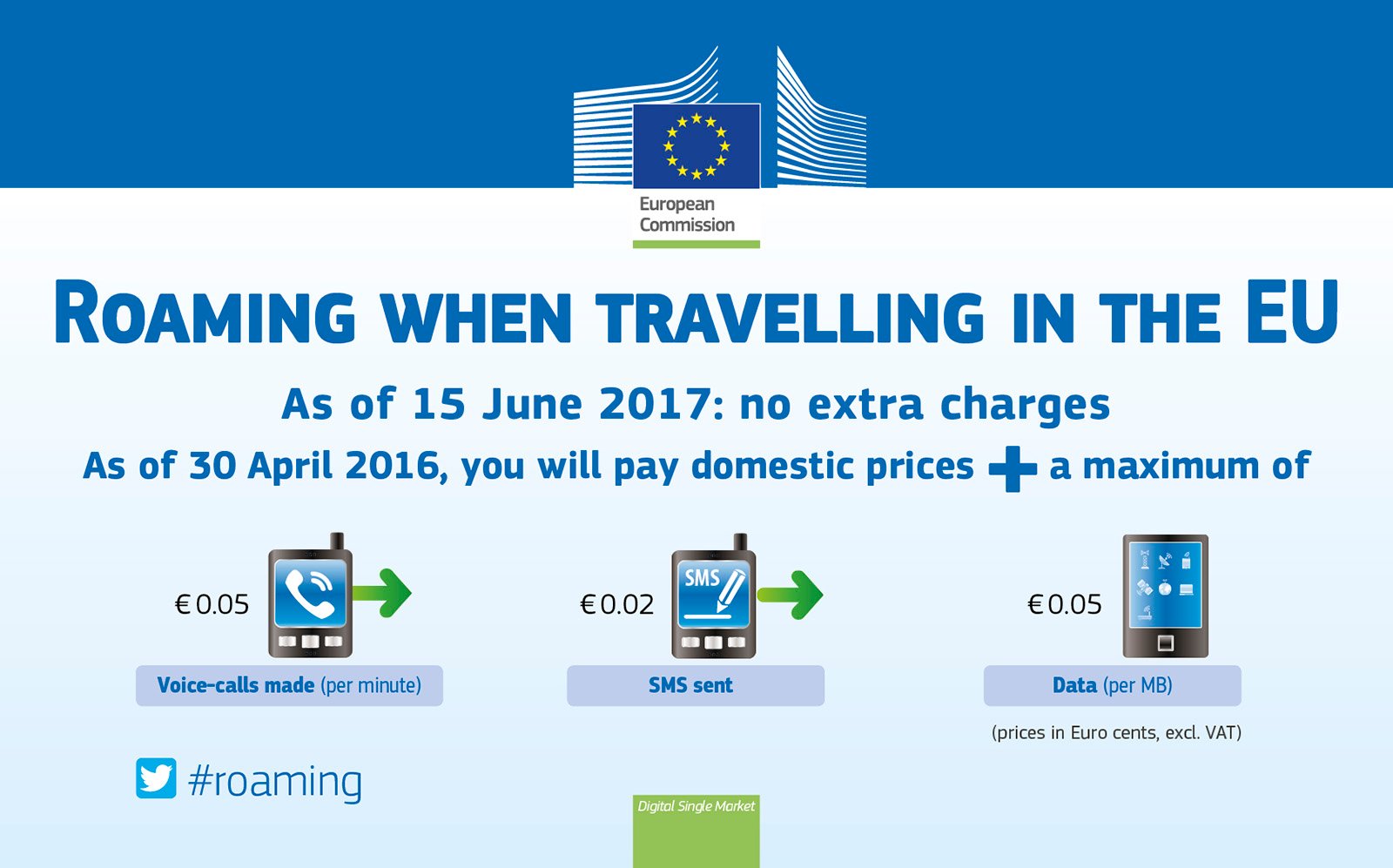Roaming charges across the European Union has been capped, meaning UK consumers can expect to spend much less when using their mobile phones in mainland Europe.
“Roughly a million Brits stay the night in Europe every day, and they spend around £350m a year on roaming charges,” said Ed Vaizey, the minister for the digital economy.
“So by realising these changes, we’re going to save British consumers millions of pounds a year.”

The following caps on charges went into effect on Saturday 30 April:
- Outgoing voice calls – the domestic price plus €0.05, down from €0.19.
- Incoming voice calls – the domestic price plus €0.01, down from €0.05.
- Outgoing texts – the domestic price plus €0.02, down from €0.06.
- For data per megabyte – the domestic price plus €0.05, down from €0.20.
These price caps are the maximum permissible prices. Operators may offer cheaper rates, so consumers should also be on the lookout for better deals.
In June 2017, roaming charges are due to be scrapped completely.
Mobile phone users will pay the same price to make calls, send texts, and use the internet no matter where they are in Europe.
Andrus Ansip, vice president of the European Commission, said: “It is not only about money but about bringing down barriers in the digital single market.”
Mr Vaizey was asked by the BBC what would happen to the roaming charge caps if the UK votes to leave the EU.
“I don’t know what would happen if we leave the EU, and that’s the problem,” he said.
“They might stay, or they might not stay.”
